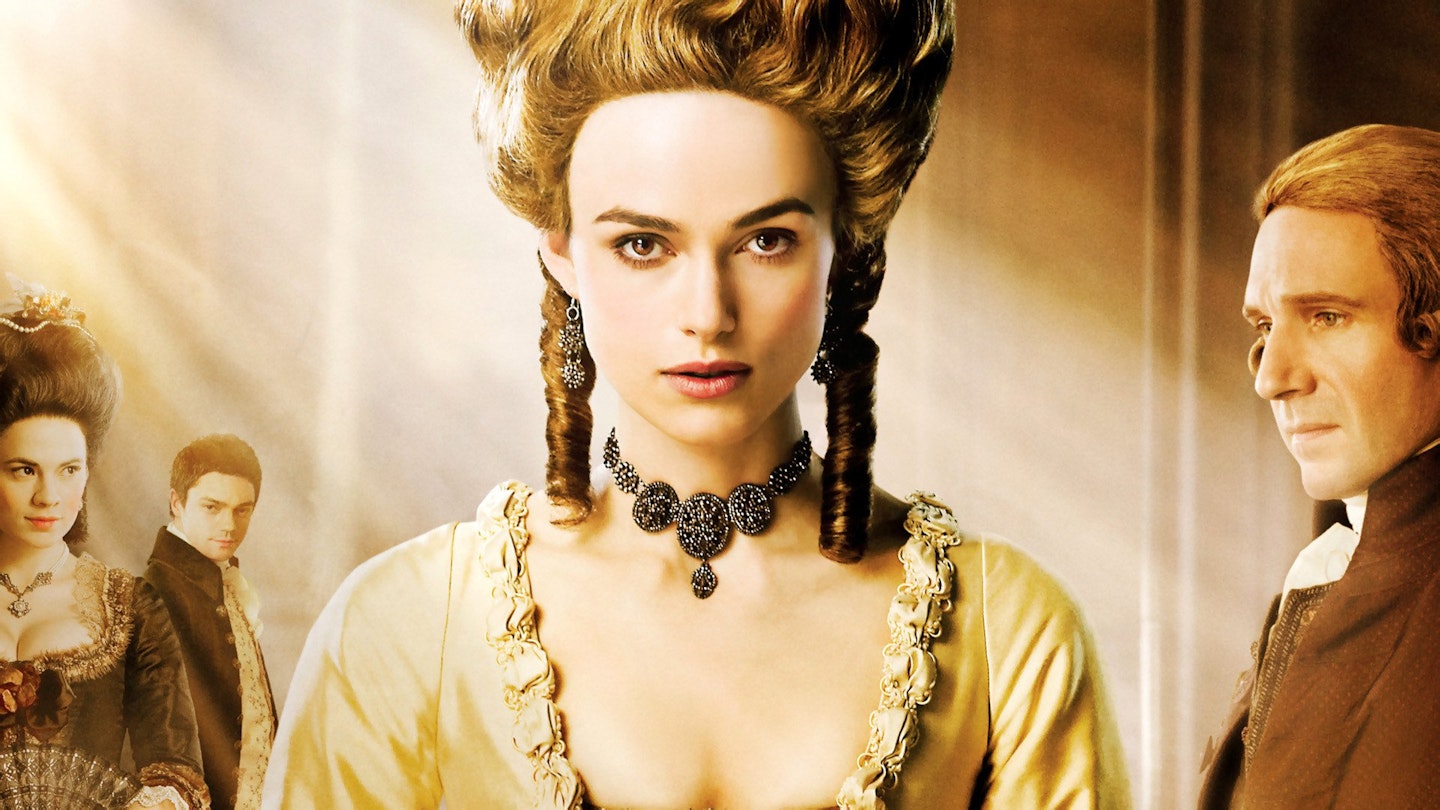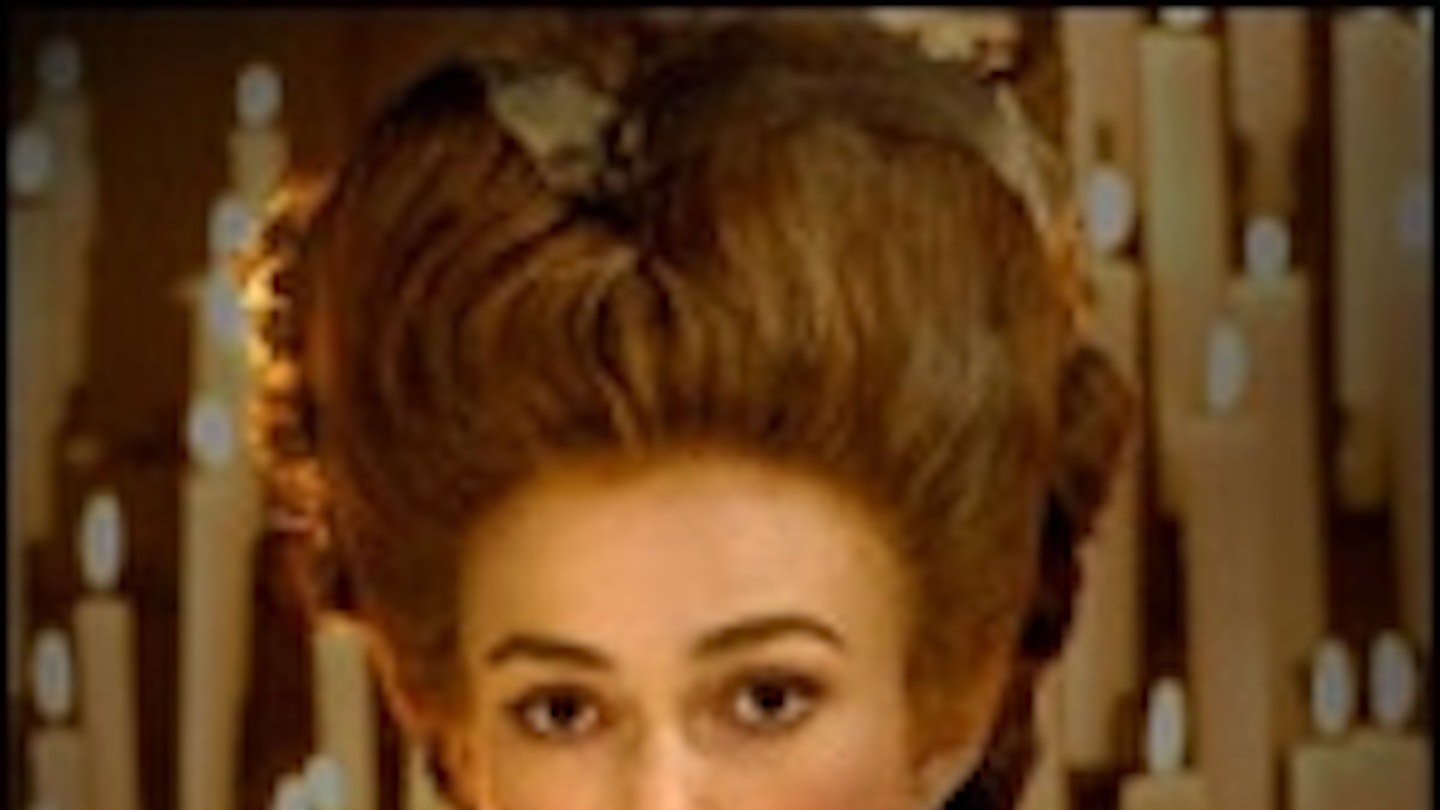The Duchess of Devonshire was an 18th century It Girl: she wore extravagant clothes, threw extravagant parties, gambled extravagantly, even set fire to hair extravagantly. And if that wasn’t enough to keep her busy, she also had a taste for booze, a head for politics and an eye for politicians. A Georgian scandal-magnet, she wasn’t your shrinking Jane Austen type, but this sombre portrayal of such a glittering star echoes the fate of a Diana or Marilyn - the woman doomed to have everything but love.
Amanda Foreman’s bestselling concrete-block biography isn’t short on incident but, rather than cram in events, this adaptation captures the Duchess in her twenties and turns its dramatic focus onto the emotional life of the public figure. In many ways, the picture celebrates Keira Knightley’s duchess as a flamboyant, headstrong modern woman born ahead of her time, trapped in a marriage that resembled a slow-motion coach-crash. In public, and by the public, she was much loved. In her husband’s affections, and as the film drolly points out, she placed somewhere below his dogs. And there she remained, eventually ousted by his affair with her best friend (Hayley Atwell). It’s this bizarre relationship that forms the film’s dramatic core, generating an oddly captivating anti-chemistry from its two leads.
The Duke could’ve gone the way of the stiff aristocratic bastard, but Fiennes’ dry wit and delicate touch make him a far more complicated proposition. For Knightley the part fits like a corset - it’s an enigmatic, free-spirited turn and a role she’ll be remembered for, probably her best role to date in a film not directed by Joe Wright.
This is the second movie from director Saul Dibb, who made his name with Bullet Boy, and the shift to another tone and era is handled with some confidence. The cast and period are immaculately turned out, and events roll at an assured, stately pace, dragging a little only in a slightly saggy third act. But - and perhaps this is Dibb’s documentary background put to use - it’s the more observant, intimate touches that count. Watch, for instance, how the emotional distance between characters is measured out during the film’s recurring dining scenes, across a table so long it would take a week to pass the salt.


